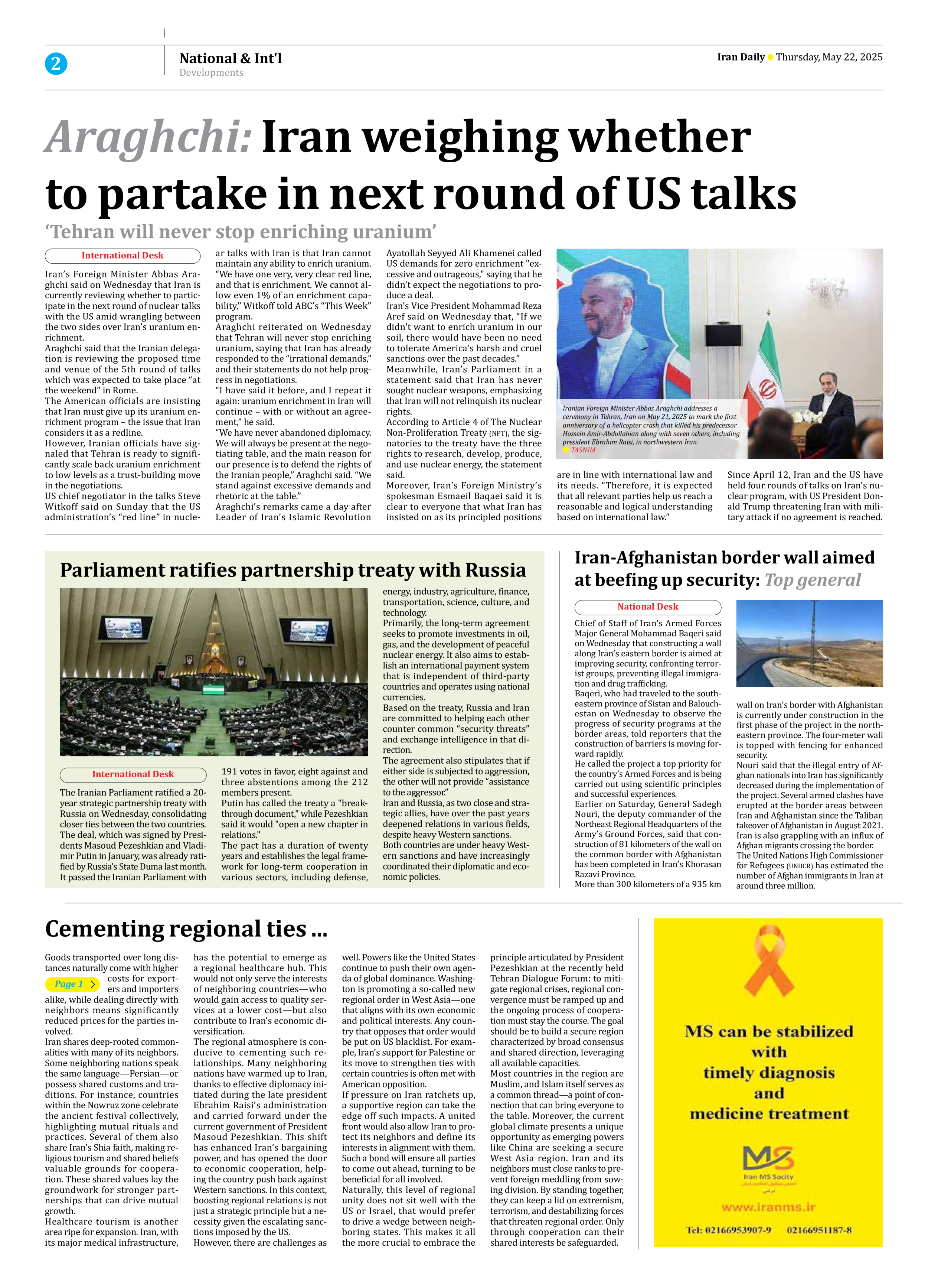
Cementing regional ties ...
Page 1
Goods transported over long distances naturally come with higher costs for exporters and importers alike, while dealing directly with neighbors means significantly reduced prices for the parties involved.
Iran shares deep-rooted commonalities with many of its neighbors. Some neighboring nations speak the same language—Persian—or possess shared customs and traditions. For instance, countries within the Nowruz zone celebrate the ancient festival collectively, highlighting mutual rituals and practices. Several of them also share Iran’s Shia faith, making religious tourism and shared beliefs valuable grounds for cooperation. These shared values lay the groundwork for stronger partnerships that can drive mutual growth.
Healthcare tourism is another area ripe for expansion. Iran, with its major medical infrastructure, has the potential to emerge as a regional healthcare hub. This would not only serve the interests of neighboring countries—who would gain access to quality services at a lower cost—but also contribute to Iran’s economic diversification.
The regional atmosphere is conducive to cementing such relationships. Many neighboring nations have warmed up to Iran, thanks to effective diplomacy initiated during the late president Ebrahim Raisi’s administration and carried forward under the current government of President Masoud Pezeshkian. This shift has enhanced Iran’s bargaining power, and has opened the door to economic cooperation, helping the country push back against Western sanctions. In this context, boosting regional relations is not just a strategic principle but a necessity given the escalating sanctions imposed by the US.
However, there are challenges as well. Powers like the United States continue to push their own agenda of global dominance. Washington is promoting a so-called new regional order in West Asia—one that aligns with its own economic and political interests. Any country that opposes that order would be put on US blacklist. For example, Iran’s support for Palestine or its move to strengthen ties with certain countries is often met with American opposition.
If pressure on Iran ratchets up, a supportive region can take the edge off such impacts. A united front would also allow Iran to protect its neighbors and define its interests in alignment with them. Such a bond will ensure all parties to come out ahead, turning to be beneficial for all involved.
Naturally, this level of regional unity does not sit well with the US or Israel, that would prefer to drive a wedge between neighboring states. This makes it all the more crucial to embrace the principle articulated by President Pezeshkian at the recently held Tehran Dialogue Forum: to mitigate regional crises, regional convergence must be ramped up and the ongoing process of cooperation must stay the course. The goal should be to build a secure region characterized by broad consensus and shared direction, leveraging all available capacities.
Most countries in the region are Muslim, and Islam itself serves as a common thread—a point of connection that can bring everyone to the table. Moreover, the current global climate presents a unique opportunity as emerging powers like China are seeking a secure West Asia region. Iran and its neighbors must close ranks to prevent foreign meddling from sowing division. By standing together, they can keep a lid on extremism, terrorism, and destabilizing forces that threaten regional order. Only through cooperation can their shared interests be safeguarded.







